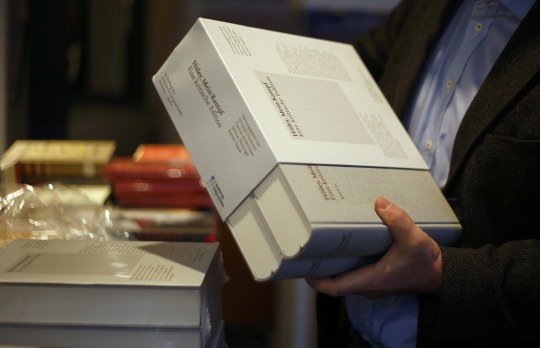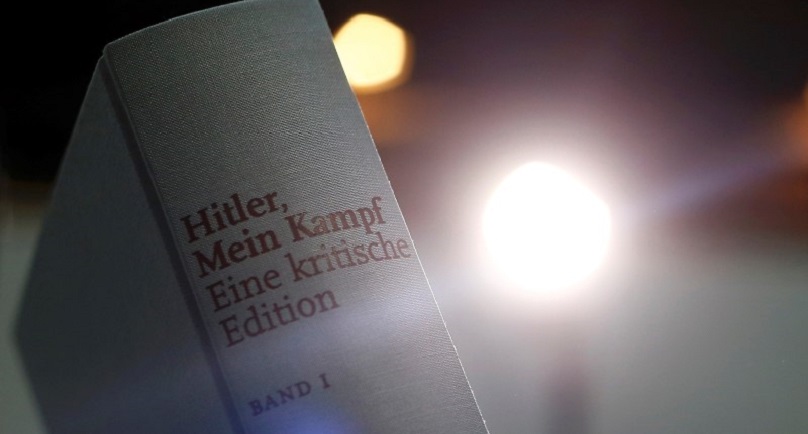Image: A copy of the book ‘Hitler, Mein Kampf. A Critical Edition’ is displayed for media prior to a news conference in Munich, Germany January 8, 2016. REUTERS/Michael Dalder
MUNICH (Reuters) – Heavy demand for the first edition of Hitler’s “Mein Kampf” to be printed in Germany since his death is taking its publisher by surprise, with orders received for almost four times the print run.
The two-volume political treatise, which was written between 1924 and 1926 and posits a global Jewish conspiracy, is regarded as one of the Nazis’ main propaganda tools. It has been re-issued as a 2,000-page annotated version after its 70-year copyright expired.
The head of the Munich Institute for Contemporary History, which published the work, said it had received orders for some 15,000 copies against a print run of just 4,000.
There had been requests for translations into Italian, French and English, and demand from Turkey, China, South Korea and Poland, Andreas Wirsching told a news conference on Friday.
The publication has unleashed fierce debate in Germany, a country’still struggling with its Nazi past and its responsibility for the killing of over 6 million Jews during the Holocaust. Some German Jewish community leaders have said the “anti-Semitic diatribe” should remain banned.
But the institute, which added some 3,500 notes to the text, defended the publication.
“The edition unmasks Hitler’s false allegations, his whitewashing and outright lies,” Wirsching said.

The book became a bestseller in Germany in the 1930s, after Hitler had become chancellor, and sold 12 million copies by the time World War Two ended in 1945. It was translated into 18 languages, but after the war it was banned in Germany by the Allied occupying powers.
“The book is not only a historical source, it’s a symbol,” said Christian Hartmann, co-editor of the edition. “And we wanted to dismantle that symbol once and for all.”
(Reporting by Jens Hack; Writing by Tina Bellon; Editing by Kevin Liffey)
Copyright 2015 Thomson Reuters. Click for Restrictions.


